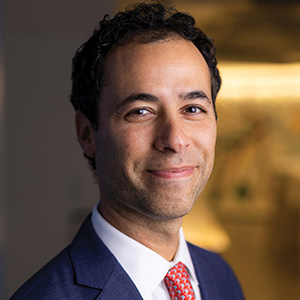Recruiting and Retaining Talent in a Post-COVID World
The experts weigh in on the pros and cons of managing talent in today’s ever-changing post-COVID environment

In today’s new, post-pandemic world, remote work options have become the norm, which can be appealing to both employees and employers.
The shift allows employers to increase their talent pool and potentially lower labor costs, while allowing employees to live where they please without having to be located close to a company’s physical office. However, these new arrangements don’t come without challenges. Employers must be certain they are compliant with local laws where they hire talent, which is easier said than done.
For these reasons, Middle Market Growth convened a special roundtable in September to discuss best practices for private equity firms hiring employees remotely in today’s ever-changing environment and to explore the pros and cons of a remote workforce.
Danielle Fugazy (moderator): How would you characterize the hiring environment today?
Julia Karol, Watermill Group: I’m going to use the word brutal. Hiring C-suite executives who can execute in an uncertain environment, like a COVID pandemic environment, or now going into a recessionary environment, is very difficult. And finding actual labor for plant floors has become increasingly challenging as well. There is a lack of available talent at every level. There is also the fact that we have all reassessed our values and what we want from our careers, and there is a resulting reprioritization of where people want to spend their time and energy, and it’s presenting challenges in the workforce.
Ilan Weiser, Ellenoff Grossman & Schole: The labor shortages are significant right now, especially in hospitality. There was the allure of working out of a van or working from your summer home that’s kind of faded off. People are getting back to work, but there’s still a general feeling among employees that maybe they should be looking around to see what else is out there. We’re also seeing more lateral movement. Employees are leaving long-term jobs in search of a better workplace culture, more flexibility, more happiness. People are staying at companies for six months or a year. In the past, they were staying at the same job for much longer.

Nicole Forbes, G-P: We’re seeing that talent, particularly younger talent, is demanding more from an employer. They’re focusing on work/life balance, flexibility in the job and demanding more from the work relationship. Talent nowadays is thinking about work in a different way than we’ve seen in the past. In terms of the company side of things, a lot of our clients are expanding their search by looking for talent in locations where they wouldn’t have looked before. Especially now that some companies are moving away from having a headquartered location, finding talent in a particular location isn’t as important.
Michelle Noon, Clearhaven Partners: Variable is the word that comes to my mind. I agree that there are aspects that are absolutely brutal relative to historical norms, but there are also benefits. We are hiring at our software portfolio companies. The pandemic and the move to more work from home opened up geographic aperture and flexibility for our companies’ hires but also for companies that might have a higher wage standard, such as Silicon Valley-based businesses, which have the potential to encroach on second-tier tier cities that have great talent and drive wages up there. On the other hand, our companies are no longer constrained to hire in a radius around their headquarters location.
We’re seeing that talent, particularly younger talent, is demanding more from an employer. They’re focusing on work/life balance, flexibility in the job and demanding more from the work relationship.
Nicole Forbes
G-P
Fugazy: How is the ability to hire talent anywhere helping and/or presenting challenges?
Noon: It is a double-edged sword. On the one hand, it’s allowed us to think more globally, or at least nationally, about talent and not be restricted to a certain geography. On the other hand, our businesses are relatively small businesses. They tend to have 100 to 300 employees and a few dozen additional contractors. As a result, there is a lot of benefit to maintaining some degree of nucleus. A 100-person company spread all over makes it very difficult to establish a culture, create uniform processes and make decisions quickly and with conviction. Despite the fact that there is potential to work from anywhere, we have still prioritized having the ability to get people together on a regular basis at our portfolio companies.
A related issue that is important to address is that many companies had become complacent with respect to employee retention and career pathing. We’ve got to be better at recruiting, hiring and onboarding in order to be good at retaining. We have a saying inside our portfolio, which is, “Always be recruiting.” You’re not necessarily always hiring, but you’re always recruiting. To Nicole’s point, on the younger generation demanding more, it’s not just about more compensation. It’s about feeling valued, feeling that they’re a part of something that they believe in and that type of corporate investment in younger folks is a show of commitment. It’s harder to do that remotely.

Weiser: The employee empowerment concept is only becoming stronger. We’re seeing unionization efforts at Trader Joe’s and Amazon and even at much smaller companies. Gym memberships and free food aren’t as attractive as they may have been in the past, and I don’t even think working from home permanently is that important to certain employees. Employees want to be part of something bigger and be valued. They want their concerns and suggestions to be heard and acted upon. That said, I think flexibility and transparency are probably going to continue to be the most important things going forward.
Fugazy: Is flexibility—not necessarily work from home—what employees are after?
Karol: Yes. There are a few things that are important to employees today. First is flexibility. The dynamics around having families and balancing it with work have shifted dramatically. Today, you have more flexibility to be present in your family life if you’re at the executive or professional level. I think companies that support family lives are going to be the ones to attract and retain talent much more readily.
On the other hand, we know that the large burden of pandemic childrearing fell to certain people who had to exit the workforce, predominantly women, which is one of the reasons we’re having a talent shortage. Corporations can recruit or retain by paying attention to families, because we’ve lost real talent to this pandemic.
Secondary things are the perks like working from home and gym memberships.
It’s also about knowing that you’re aligned with corporate values.
Related content: Q&A: Hiring Talent Where Talent Lives
Noon: That last point is important. When we make an investment in any portfolio company, we have an exercise to align on strategy, which includes reviewing the company’s mission, vision and values. What we often find is those aspects are not consistently articulated by the team. Employees want to know what kind of company you are. It’s almost more important for us to talk about the culture and the company’s beliefs and ethics before getting into job responsibilities, because people want to feel like they’re doing meaningful work in a place that matches their values.
Forbes: That really resonates. We often focus on and talk about the mission of our company, which is to break down barriers to global business and enable opportunities for everyone, everywhere. Our company provides employment opportunities to individuals who they otherwise wouldn’t have access to because the company doesn’t have an international subsidiary. And on the other hand, we provide customers access to a talent pool they otherwise wouldn’t have considered. A lot of employees feel energized by the mission of the company and want to know what their career path could be and how they can contribute to the mission, rather than being interested in some of the tangibles like a gym membership, free meals and ping-pong tables.
Weiser: Flexibility can mean different things. It can be about letting employees carve out how they want to do their work or where they are performing that work. If I’m going to let you be flexible and work from home, or work from wherever you want, does it mean I can just work from my weekend home versus the city office? Does it mean I get up at 5 o’clock in the morning and finish my work, so I can do other things during the day? Do I have to be on a 9 a.m. call every week even if I haven’t contributed to that meeting in any meaningful way in the past five years at the company? Employers seem to be more open to changing their practices and not sticking to what was previously done.

Noon: There are some benefits of what you are describing and then there is the potential downside of losing some of what makes a business more efficient, more cohesive and more effective. There is a need for some synchronous interaction. A lot of companies are faced with how to allow for flexibility while at the same time not losing the entirety of that cohesion.
The sooner we can get the right blend of flexibility and together time, the better off the company will be.
Karol: In lean manufacturing, one best practice, which isn’t always universally applied, is the team huddle. At the beginning of a shift, everyone gets together on the floor for the huddle. When you apply tiny actions to bring teams together like that, you see dramatic improvement in the environment and performance.
However, the other side of it, is that these days nobody wants to attend the “stupid” meeting every Tuesday at 9 a.m., so there is something to striking the right balance.
Forbes: Because then your days become eight-plus hours of meetings on Zoom. You don’t have the time to think or the time to have personal interaction and problem-solve in person. I think that’s a huge struggle that a lot of companies are facing, but the key is finding a balance.
Fugazy: What is the disadvantage to people being remote?
Karol: I was having a conversation with somebody recently who said,“I can’t believe I spent my entire professional career showing up in an office in a suit every day, that was so asinine. I wish I had joined the workforce a little bit later.” My reaction was, yes, I get it, but we’re trained so that our best practices, our self-awareness of how we are most efficient and effective personally were already patterned by the time the pandemic hit so that you can be your best self. If you’re a junior person coming in for the first time and you’re not shadowing and you’re not being taught how to work, how do you learn?
Forbes: You can lose out on that mentoring, seeing different people in the workforce and how they interact with other people, how they problem-solve or deal with conflict, how they show up to work.
Fugazy: There are clearly challenges the business community is still working through, but everyone has some degree of remote work now. What does it mean to hire outside of your jurisdiction from a legal perspective?
Forbes: Supporting a global workforce and allowing individuals to work in different locations comes with compliance challenges. You can’t just put someone on the ground in a different country and give them a U.S. employment contract and wire them money from the company’s U.S. bank account. Generally, you need a legal entity in every country in which you have an employee, and the employment laws in that jurisdiction apply to the employment relationship. If a company wants to hire and expand internationally, you need to think about setting up a corporate entity, getting local tax advisors, lawyers, a local payroll company, insurance providers and making sure you have compliant employment documentation. It can be complicated.
There is no one-size-fits-all approach when hiring internationally. That said, you can use a company like G-P as an employer of record, so you don’t have to set up your own legal entity, run payroll, do taxes and deal with all of the employment and HR compliance issues.
Related content: Hiring Talent Gets Easier with a Larger Pool of Candidates
Weiser: It’s difficult to hire employees on an international level without first doing proper due diligence to ensure you are complying with that country’s own local laws. And don’t forget that you also have different laws from state to state in the U.S. to worry about. Companies have to decide if they want to take on the burden of spreading out so far and wide. It’s a challenge with risks, and costs.
Fugazy: What are best practices if you are going to hire remotely?
Forbes: Work with trusted advisors. Don’t feel like you have to go it alone. There are people and companies that advise on these issues and can make the process of hiring internationally much easier. And don’t assume what you’re doing at headquarters can apply everywhere.
Weiser: Do not let employees fly under the radar. You have to know where your employees are and where they are working from. The Department of Labor doesn’t know your private equity world and they’re looking at compliance in a black and white way. You don’t want to be caught off guard and be in legal hot water because you didn’t know where your employees were living and working, and which specific laws you were required to comply with.
Noon: We do labor and employment due diligence, we do tax and other legal due diligence. These are some of the issues that we’re looking at: Where are your employees based? Are these employees or contractors? Then it’s a risk-based assessment of how you remedy it, because you can’t snap your fingers and change your compliance overnight for every issue.
Fugazy: There is a good and bad to the new world of remote work Where do we go from here?
Noon: Corporate leaders are still struggling to find that new normalcy because when it became obvious that people could work from anywhere during a pandemic, which was clearly at the time a temporary situation, we figured there would be a reversion to some level post-pandemic. You could withstand the notion that you’re in multiple time zones and people are taking Zooms from the beach. But now, some companies can maintain better than others, depending on the nature of their work and their employee base. And there is a reality that suggests maybe it’s not ideal that one member of the team is constantly taking calls at 5 a.m. Each company needs to decide what works for it. We are far from establishing a steady state as a business community.

Karol: We have assumed that people who thrive in an in-person environment are the ones that will thrive by going into the office and will not like remote working, and those people who put their head down and work can be happier working remotely. I think it’s the opposite.
Those people who like an in-person environment will more naturally gravitate to pick up the phone and say,“Here’s what I’m working on. Can I get your advice?” The person who is a lone wolf, likes to put their head down and just chug along is the person who needs to be in an office where you can pop your head in and say, “What are you working on right now? How are things going?” Otherwise, they become pretty isolated.
Forbes: There’s going to be a different balance for every company. As a company, we have had to figure out, how do we gather? What does that look like? If you have a global workforce, you have to be attentive and make sure you are working to create intentional interactions. We have gatherings and meetings across multiple time zones. For example, we have a company-wide all-hands meetings, but we have two sessions. One in the morning East Coast time to include Europe, LATAM, and East Coast U.S., and one in the evening to include employees in APAC, West Coast U.S., and those who might prefer an evening meeting. We want everyone to have a chance to participate.
Weiser: That’s smart because it makes employees feel part of a group, gives them flexibility and speaks to retention as well.
Forbes: Balancing remote work will continue to evolve and be refined, but it’s not going away.
About the Participants
Danielle Fugazy is a freelancer writer covering private equity for more than 20 years. She is based in Glen Cove, New York.
Nicole Forbes is deputy general counsel at G-P, a global employer of record company that helps customers engage talent all over the world without needing to set up their own international branch offices or subsidiaries. G-P works with clients of all sizes, industries and geographies.
Julia Karol is president and COO of the Watermill Group, a middle-market private equity firm that invests in manufacturing and industrial businesses. For more than four decades, the family-owned and -managed firm has been acquiring, operating and improving companies.
Michelle Noon is a co-founder and managing partner at Clearhaven Partners, a Boston-based, lower middle-market software and technology buyout firm. Clearhaven invests thematically in growth-oriented companies with revenues below $100 million and where Clearhaven can partner with management and add value through operational improvements.
Ilan Weiser is a partner in the labor and employment practice group of Ellenoff Grossman & Schole, a New York-based law firm. He provides advice and counsel to businesses all over the country on how to comply with workplace laws concerning their employees. The firm was founded in 1992 and employs more than 120 lawyers.


